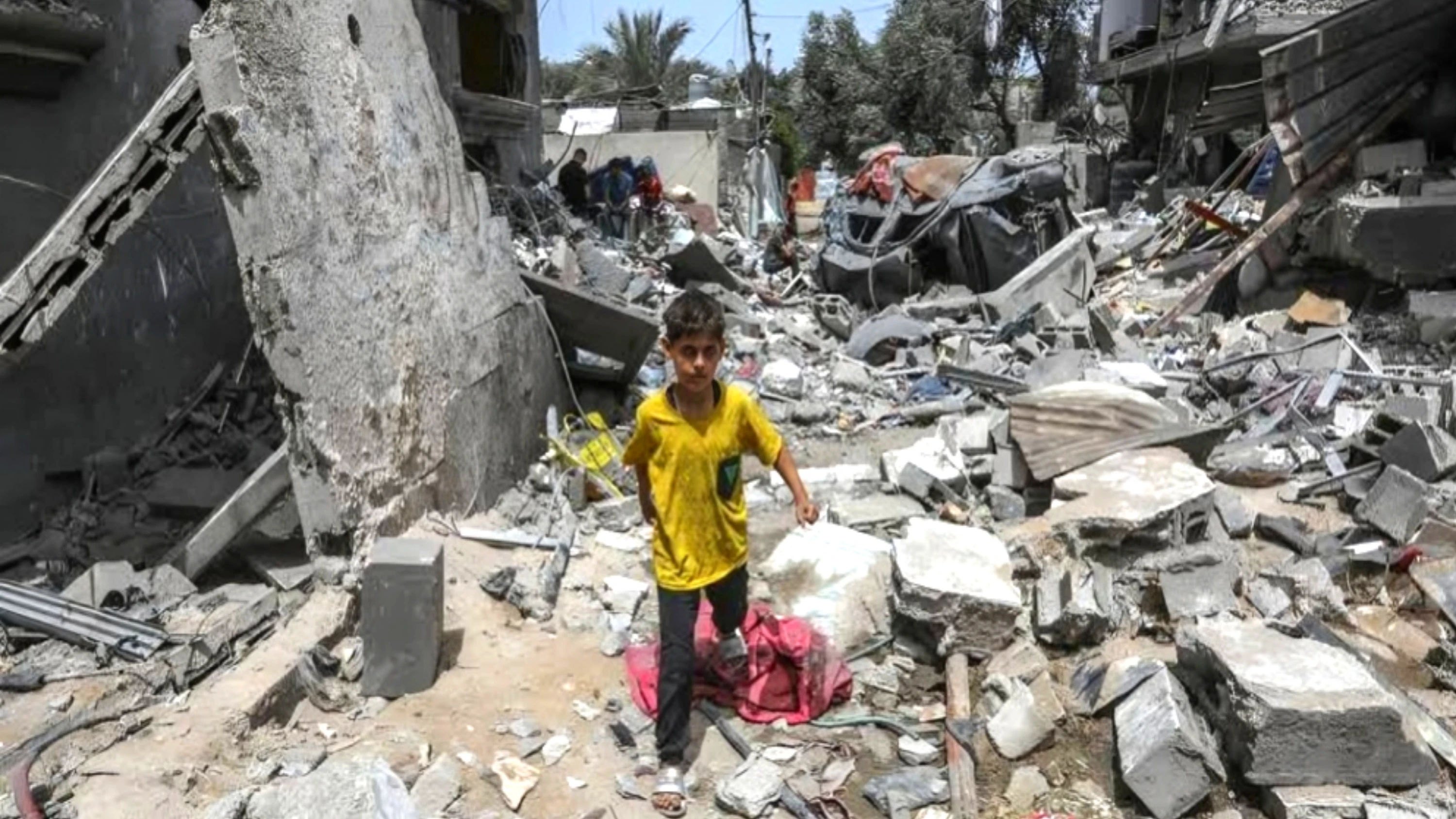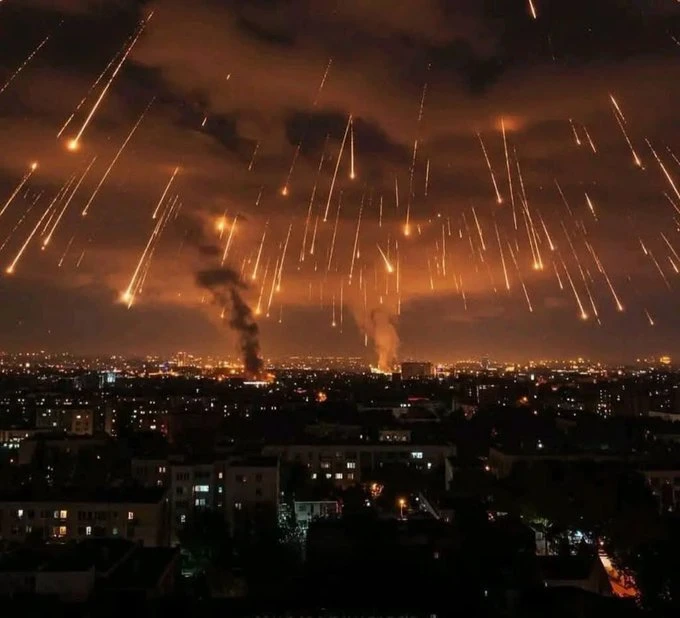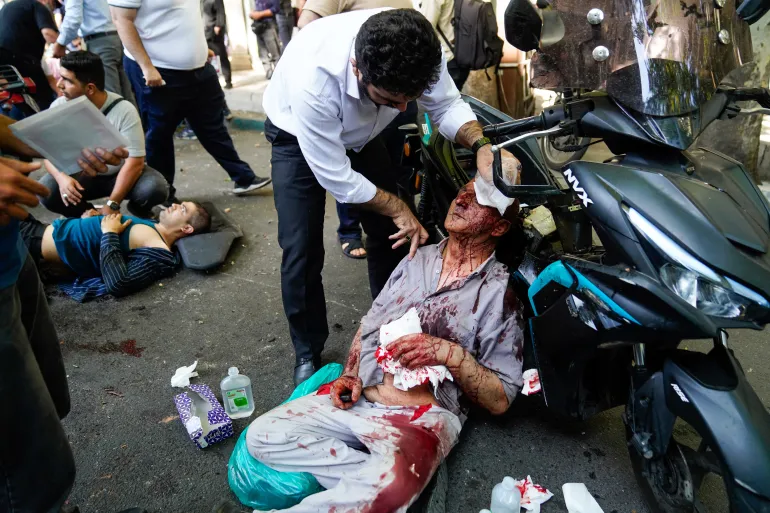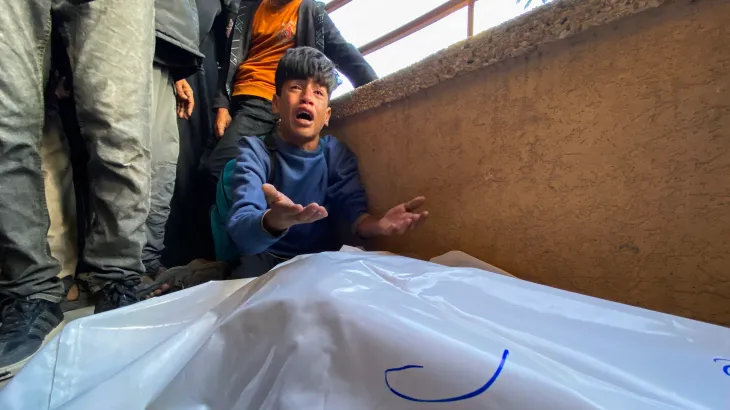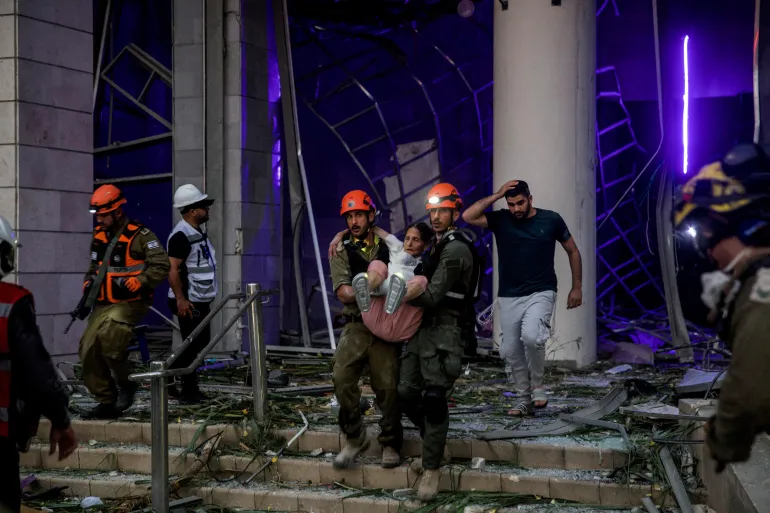Gaza: The United Nations Office for the Coordination of Humanitarian Affairs (OCHA) has reported that attacks on civilians in Gaza have continued in recent days. Among the victims are people who were trying to collect food or other essential aid.
Humanitarian organizations working to protect children say several children were temporarily separated from their families during chaotic movements near heavily militarized food distribution points. Although the children were later reunited with their families, aid groups are now working to prevent such risks from happening again.
Over the weekend, telecommunication services in Gaza were temporarily restored after Israeli authorities allowed teams to repair damaged cables. This came after weeks of access denials. However, another outage occurred on Monday in central and southern Gaza, which was again fixed by emergency repair teams.
Despite these efforts, humanitarian partners warn that Gaza is still at extreme risk of famine. Food insecurity remains catastrophic. According to the UN Population Fund, pregnant women are surviving on far less food than they need. Many are now malnourished, and one in every three pregnancies is considered high-risk. Half of all essential maternal health medicines are currently out of stock.
Aid groups continue working with the limited resources they have. Last week, 44 community kitchens delivered an average of 200,000 meals each day. But prices for food are still rising sharply. In Gaza City, a 25kg bag of flour recently sold for 1,600 shekels—about US$450.
OCHA says life-saving aid must be allowed into Gaza without delay and in line with international humanitarian principles. Humanitarians must be able to work freely to reach those in need.
Fuel supplies have now reached critically low levels. Without urgent deliveries, services like clean water, sanitation, and hospital operations are at risk of shutting down. In southern Gaza, diesel supplies—needed to operate machinery—are nearly gone.
Today, Israeli authorities again blocked efforts to collect fuel supplies from Rafah. Aid partners are now forced to ration what little they have, as they continue negotiating for access. OCHA has warned that if fuel is not delivered soon, humanitarian work, communications, and banking services in Gaza may grind to a halt.
Restrictions on humanitarian movement remain high. Today alone, Israeli authorities denied 7 out of 17 requests for vital operations, including water delivery and waste removal.
Over the weekend, the UN and its partners managed to collect nearly 100 truckloads of aid, including wheat flour, from the Kerem Shalom crossing. On Sunday, over 50 more truckloads were sent to the crossing—but this was only part of a much larger request. Strict limits continue to apply on what can enter Gaza and how much aid is approved.
At the same time, fresh evacuation orders are forcing more people to flee their homes, creating an even greater need for shelter. For more than 100 days, Israel has banned the entry of shelter materials into Gaza. OCHA says such materials are essential and must be replaced regularly, especially as many people are repeatedly forced to move.
The humanitarian crisis in Gaza continues to worsen. The UN is urgently calling for safe access, essential supplies, and fuel to prevent further suffering and potential collapse of critical services.


